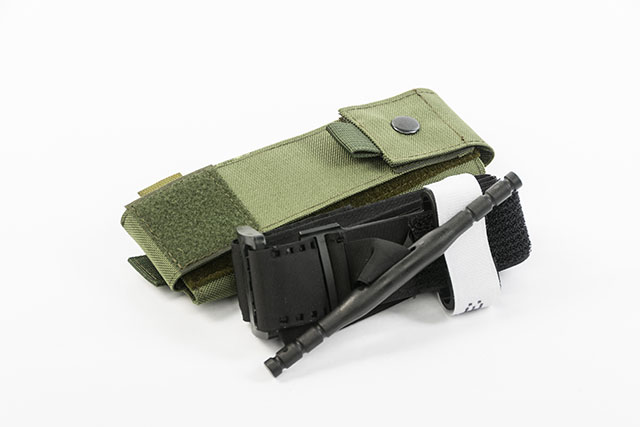When catastrophe strikes, survival is what’s going to be at the forefront of everyone’s minds. Whether it be a natural disaster like a hurricane or a more dangerous threat, preparedness can help mitigate some of the danger that lies ahead. Necessities like food, water and shelter may be your top priorities, but there is a threat that can be forgotten amid chaos: Infection. Disease can spread like wildfire in stricken communities where modern luxuries are suddenly absent.
And in a post-disaster world, disease can easily mean “death.” When access to medical supplies and other life-saving goods (like clean water and food) are limited, infections are the last things you want to have to deal with. Here are some of the most common deadly infections that may crop up in a disaster scenario (and what you can do to prevent them):
1. Norovirus
Norovirus is a highly contagious gastrointestinal infection. Even under normal conditions, it is ranked as the most common cause of food-borne illness and infection in the United States. The infection can spread through contaminated food, contact with an infected person, or touching surfaces that have been contaminated with the virus.
People who are infected with norovirus can be contagious and spread disease before they even know they are sick — and may continue to harbor the pathogen for up two weeks after symptoms have subsided.
Symptoms include diarrhea, vomiting, nausea and abdominal pain. The best tips to avoid norovirus? Purify your water, wash fruits and veggies before consuming, and most importantly, wash your hands often. Cleaning and disinfecting surfaces is also important, especially if someone in your group shows signs of illness.
2. E. coli
Another highly contagious gastrointestinal infection, E. coli shares a similar outlook as norovirus. It is easily spread through contact with contaminated foods, surfaces and people. Symptoms include fever, vomiting, diarrhea, nausea and stomach cramping.
Home care includes plenty of fluids and rest. Prevention tips include good personal hygiene and hand-washing, purifying your water supply and washing fruits and vegetables before consumption.
3. Tetanus
Getting wounded by a rusty metal object may not seem like a big deal right now — but after SHTF, one rusty nail could be the difference between life and death. Some of the symptoms include difficulty swallowing, stiffness in the neck and jaw, fever and sweating. As tetanus progresses, breathing may become difficult and death may soon follow.
Some steps you can take to prevent tetanus include thoroughly cleaning wounds with an antiseptic solution and covering with a bandage. There are many natural antiseptics you can keep in your bug-out kit.
4. Influenza
The flu is one of the most common illnesses, and even today, the infection can be fatal for some people. But under apocalyptic conditions, the outlook for a flu outbreak looks even worse. Without access to modern amenities, the flu can become much more dangerous — especially given its propensity to spread. New studies have shown that the flu can spread simply by breathing, and in a disaster situation, space may be tight.
Sanitation is key to preventing flu from spreading: Washing hands, disinfecting surfaces and limiting contact with the sick are all ways to keep flu at bay.
5. Pneumonia
One of the top concerns in a disaster situation is the potential for a seemingly innocuous cold or flu to turn into a much more serious, life-threatening condition: pneumonia. Symptoms include fever, chills, chest pain, difficulty breathing and wheezing.
The best way to prevent pneumonia from forming is to take care of yourself at the first signs of illness: Rest, fluids and immune system-supporting foods are a must.
These are just a few of the most common illnesses you may come across in a disaster situation. Some other notable diseases you may encounter include measles, dysentery, cholera and tuberculosis.
Read more news about infections at Infections.news.
Sources for this article include:
UrbanSurvivalSite.com
CDC.gov



